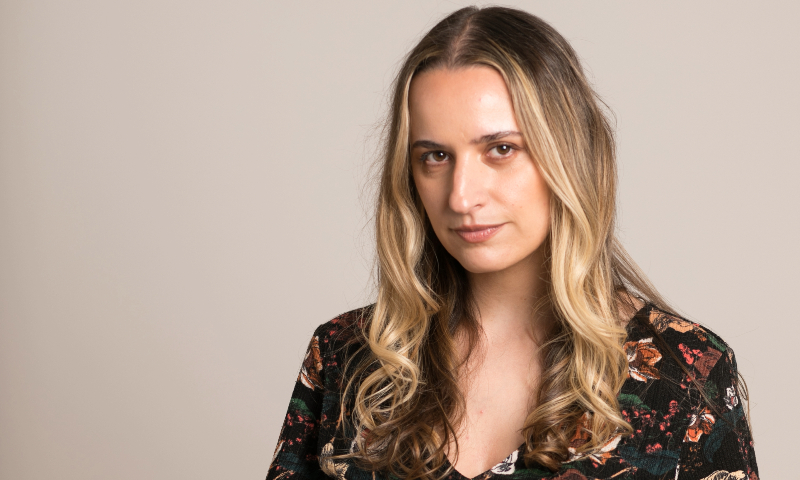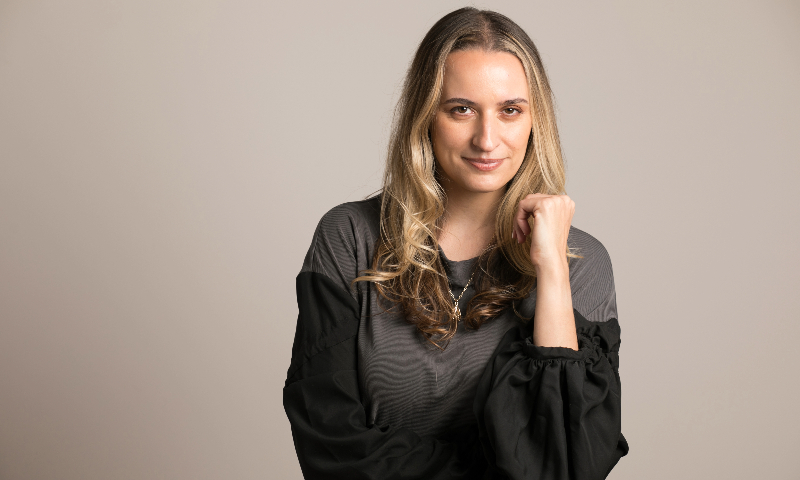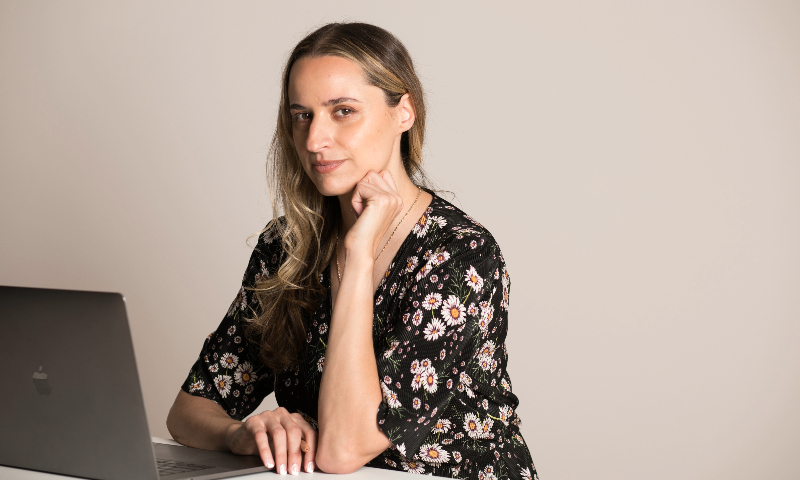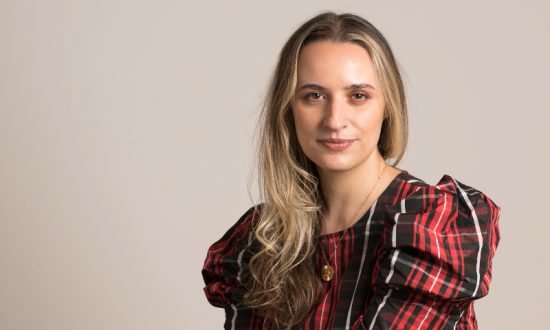Daniela (Dani) Herrera is a bilingual, certified, award-winning Latina Immigrant. She’s a Talent and DEI Consultant, Speaker, and Trainer with 17+ years of global experience in Talent Operations, Recruitment, Leadership, and DEI. Among other things, Dani is also one of the Co-Founders at “Allies in Recruiting,” a Career Coach, and a Content Creator.
Dani is radically and unapologetically committed to helping organizations analyze and deconstruct biased and inequitable systems. She works (very!) intentionally to nurture cultures that attract and retain talent from historically excluded communities, designs processes that minimize biases, and builds strategies that foster inclusion, equity, and equity.
Recently, in an exclusive interview with CXO Outlook Magazine, Daniela shared her professional background, what Diversity, Equity, and Inclusion means to her, some of the effective ways in which leaders can be trained to prioritize DE&I within their departments and teams, the one lesson she learned that’s unique to being a woman leader, future plans, pearls of wisdom, and much more. The following excerpts are taken from the interview.
Brief us about your background and areas of interest.
I’m Daniela (Dani) Herrera. I’m an award-winning Talent and DEI Consultant, Trainer, Speaker, and Coach with 17+ years of experience in Recruitment, Talent Operations, Leadership, and DEI. I’m also one of the Founding Partners at Allies in Recruiting – a volunteer-led organization that supports recruiters and TA professionals on their DEI journeys- and a member of the NASA panel of DEI Professionals. Among many other things, I’m radically committed to helping organizations become more Intentionally Inclusive and supporting Historically Excluded Candidates in their career journeys.
I’ve been privileged to have my experience and POV published in Forbes, Business Insider, Inc. Magazine, Refinery 29, and BBC, and I have had the honor to speak at local and international conferences like SXSW, Disrupt HR, Hacking HR, Decisions Conference, Lesbians Who Tech, Women Tech Global, and many others!
I started my career in Talent Acquisition and Leadership back home, in Buenos Aires, Argentina. Back then, I didn’t know that DEI was a career I could pursue. Still, I was already determined to work with Historically Excluded Talent and improve and update the ways companies approach sourcing, interviewing, and hiring.
Daniela, can you tell us what Diversity, Equity, and Inclusion means to you?
For me, Diversity, Equity, and Inclusion are both the core mission that drives me and my work, as well as the core values I look to embed in all my clients’ work and systems. DEI is not a passion or a side project; it is my purpose.

What are some effective ways leaders can be trained to prioritize DE&I within their departments and teams?
First and foremost, we need to help Leaders and Executives understand that DEI is not a “nice to have” or something we do to stay “on trend” but an absolute must for their organizations and their future in business. If companies want to grow, attract and retain talent, remain relevant, and stay ahead of their competition, deeply embedding equity, inclusion, and accessibility in their business is truly imperative.
To get started, I strongly recommend assessing their Leadership’s understanding of DEI and how it impacts their employees and businesses so a proper training and accountability plan can be implemented. This assessment will also shine a light on what systems, programs, processes, and platforms might need to be updated, revamped, or re-designed completely with a DEI lens.
I don’t recommend jumping into training sessions without any other accountability plans in place, as they tend to be ineffective. Whatever training, accountability, and revamping plan the company decides to move forward with, it has to be a comprehensive, all-encompassing, equitable, and accessible plan that can be updated and altered as needed. For example, if a company decides they need to train their Leaders on how to hire talent more inclusively, I’d recommend also deconstructing their hiring practices so they can identify and embed inclusion and accessibility into the process, train the entire recruitment and hiring teams, and plan for an ongoing and long-lasting training and process revision and redesign.
How have you navigated advocating for Diversity, Equity, and Inclusion with employees who don’t understand its importance?
Whenever I work with someone who doesn’t fully see the value of DEI, I try to understand why they’re reticent and where those feelings are coming from. Sometimes, we learn that the pushback is coming from a place of misinformation, miseducation, or lack of understanding of what DEI really is. In those cases, one of the most impactful things we can do is help that individual see how DEI programs, systems, and processes genuinely benefit everyone in the organization, themselves included!
For example, an employee might be feeling apathetic toward DEI initiatives. Still, after a deep and meaningful conversation, we learn they’ve been struggling with getting promoted or getting the salary raise they deserve. In those cases, we can show the employee how pay parity and pay equity systems will elevate everyone in the company, including them! Once an employee can see themselves positively reflected on what we’re trying to accomplish, they’re often a bit more open to engage and embrace DEI.

What are the three expectations you have for a diverse and inclusive workspace?
First and foremost, I expect the C-level team and the HR team to be fully onboard and ready to listen, accept, and fund the DEI Expert’s opinions, suggestions, and plans. Unfortunately, without their support, very little will be accomplished, and systematic issues won’t be addressed. To start working towards a more inclusive workspace, I want to see them fully committed to embedding equity, accessibility, and inclusion in everything they do every single step of the way! DEI is not “another department” or a “nice to have”, DEI is an improved way of doing business. Without this level of commitment, we’d just be engaging in performative actions, which can cause more harm than good.
Second, I expect organizations to really listen to their employees and their needs. No meaningful and long-lasting change can be achieved without understanding where the issues are and how they’ve been impacting their previous and current workforce.
Third, I expect the company to own its mistakes and fully embrace accountability measures that will help everyone on the team thrive and grow, even if the process can be a bit hurtful at times! After all, it’s not easy to de-construct, dismantle, and re-design centuries of biased, inequitable, stereotypical, inaccessible, and un-inclusive practices, systems, and policies.
How important is it to have diverse perspectives and experiences at the table when making business decisions?
Extremely important! We know, with certainty, that diverse, inclusive, and equitable companies do more and better business, attract more clients and potential employees, do better financially, and create better and more creative products and solutions. Not having diverse voices is genuinely doing a disservice to your teams, your company, your future, and the product you’re trying to build.
How do you unplug and step away from work?
I read a lot (a lot!), play video games, walk my dog, and do touristy things around New York. I also find comfort in sharing safe spaces with my community.
Working in a historically male-dominated industry, what has been your journey breaking down barriers and stepping into leadership roles?
I approach my work and craft with genuine interest, compassion, empathy, and intentionality. I’m always learning, studying something new, and challenging my beliefs. I’m always open to doing things differently and listening to what my peers need or say. However, I don’t make space for stereotypes or biased opinions of my work or myself. I don’t make space for discrimination towards the Historically Excluded Communities I elevate, and I’m very vocal about those boundaries.
With that said, this approach to work and leadership didn’t come naturally to me. It’s still an ongoing practice I exercise every day.

What is the one lesson learned that’s unique to being a woman leader?
Unfortunately, I learned that many people see boundaries as a “punishment” instead of an act of self-care and respect for the other person’s time, self, identity, or community.
Where do you see yourself in the next 5 years?
I see myself supporting even more companies in their Intentional Inclusion journeys and elevating even more Historically Excluded Talent.
For companies exploring a diversity strategy for the first time, what advice do you have to drive a diversity-first mindset?
First and foremost, for those companies that are just getting started in this journey, I recommend finding their “why?”. Understanding why they want to do better is key to embracing change. Implementing cohesive, all-encompassing, and long-lasting Diversity, Equity, Inclusion, Accessibility, and Justice systems go hand-in-hand with change management practices, and we simply can’t do that if we don’t understand what drives us.
Second, I can’t recommend “listening to your teams and employees” enough. Sometimes, HR and C-Level teams have misguided ideas of what’s happening and how the company has shifted or needs to change.
And third, don’t try to do it all on your own! Enlist a team of DEI Professionals to guide you through the process, so we can ensure that you don’t lose sight of your “why” and that your current and future employees feel included and welcomed in the most accessible and equitable manner possible.


